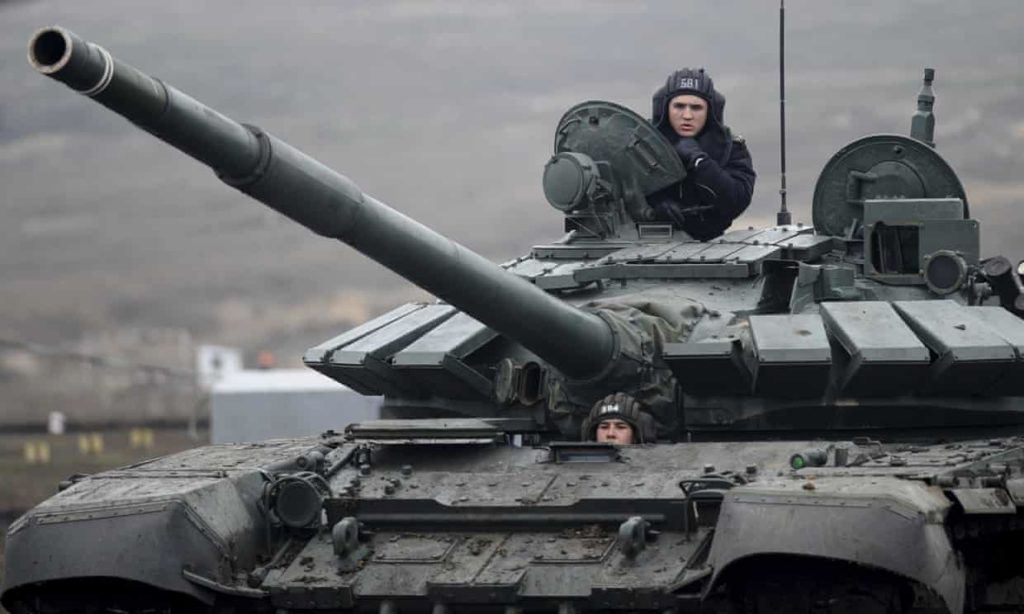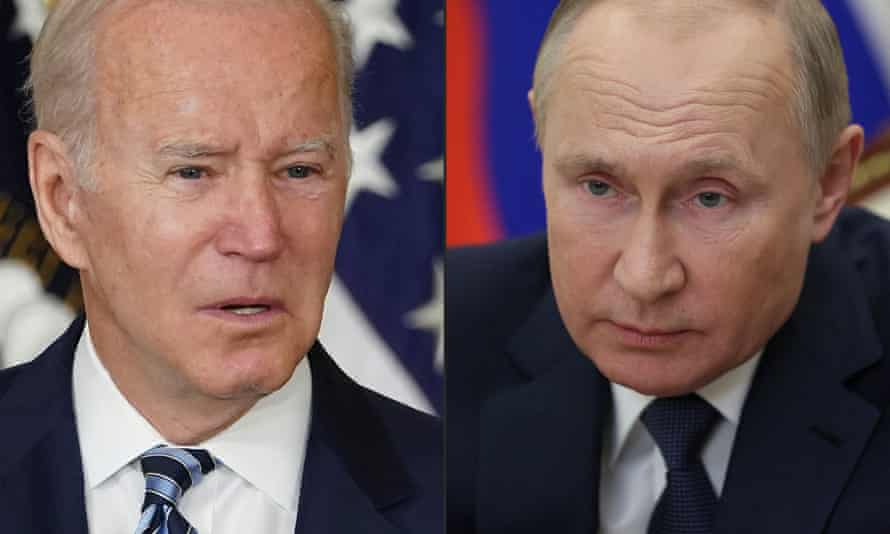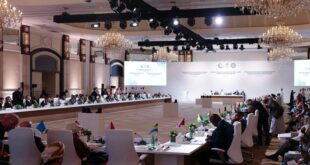
The US has told Vladimir Putin to choose between dialogue and confrontation on the eve of a critical week of diplomacy over Ukraine as Russian troops remained massed along its borders.
Senior diplomats from the US and Russia were expected to meet in Geneva on Sunday evening and Monday to discuss Moscow’s demands, set out last month in two draft treaties, one with the US and one with Nato. Much of their content is unacceptable to Washington and the alliance, most importantly a pledge that Ukraine will never be a Nato member.
Russia has 100,000 troops positioned near Ukraineand a similar number are primed to be mobilised at short notice, according to the US secretary of state, Tony Blinken, who said on Sunday that the week’s diplomacy was a moment of truth for the Russian president.
“There are two paths before us,” he told CNN. “There’s a path of dialogue and diplomacy to try to resolve some of these differences and avoid a confrontation. The other path is confrontation and massive consequences for Russia if it renews its aggression on Ukraine. We’re about to test the proposition about which path President Putin’s prepared to take.”
The Biden administration insists that sovereign states’ right to apply for Nato membership is not negotiable. Nor are US troop deployments in Europe, administration officials have stressed. They said, however, that Washington would discuss other security guarantees, such as mutual limits on missile deployments and military exercises on the continent. That would fall far short of the comprehensive changes Moscow is demanding.
Few if any diplomatic observers expect a quick deal to resolve the crisis this week, and the opposite – a complete breakdown – is possible. It should quickly become apparent whether Russia is interested in negotiating over its proposals or whether they were designed to be rejected, creating a pretext for a war Vladimir Putin has already decided on.
“We’re about to test the proposition of which path President Putin wants to take this week,” Blinken, told the ABC News programme This Week. “And the question really now is whether President Putin will take the path of diplomacy and dialogue or seek confrontation.”
“Lower your expectations and then lower them some more,” said Melinda Haring, the deputy director of the Eurasia Center at the Atlantic Council. “Watch Moscow’s demands in the meetings. If Russia insists that Nato cannot expand ever again, we will know that Moscow is preparing for war in Ukraine, since this is a red line for the west.”
Secretary of state Tony Blinken says coming week of talks is moment of truth for Russian president
The two sides in Geneva will be led by veteran negotiators, the US deputy secretary of state, Wendy Sherman, and her Russian counterpart, Sergei Ryabkov, accompanied by senior officials from their respective defence departments and militaries. The negotiations are scheduled to begin on Monday, but officials said there would be a less formal meeting between the two delegations on Sunday evening.
The French European affairs minister, Clément Beaune, complained on Sunday that the EU was being excluded from the talks, an omission which he said played into Putin’s hands by dividing the west.
“Europeans shouldn’t be absent from the negotiation table,” he told TV network CNEWS.
US officials say that Sherman and her team will discuss only the bilateral elements of Russia’s proposals, and not anything in which other countries have a sovereign stake. The mantra to Kyiv and Nato capitals is: “Nothing about you without you.” France and other European states will be represented at the two other rounds of talks over the course of the week.

In Geneva, Sherman will also list the costs to Russia if it goes ahead with military action in Ukraine, including sweeping financial sanctions, possibly cutting it off from the international electronic payments system Swift, and limits on its citizens’ ability to buy western technology.
According to the New York Times, the chairman of the US joint chiefs of staff, Gen Mark Milley, has also warned his Russian counterpart, Gen Valery Gerasimov, that an invasion would face a long insurgency, backed by advanced US weaponry. US officials have refused to comment on reports that Stinger anti-aircraft missiles were being sent to Ukraine in anticipation of such a guerrilla war.
“This week’s diplomacy is critical. From a certain moment it was clear that the west would not say an outright ‘no’ to Moscow’s proposal because too much was at stake. The question was, how far Washington and Europeans are ready to go with the talks,” said Andrey Baklitskiy, a senior research fellow at the Moscow State Institute of International Relations.
Russia’s rushed military intervention in Kazakhstan has thrown another wildcard on to the table, but Baklitskiy does not expect any impact on the Ukraine crisis. “There is no direct link between Ukraine and Kazakhstan. Even the people handling the issue in Russia are different except for the very top,” he said.
Others say it is too early to tell whether the uprising and the response will unnerve or embolden the Kremlin. “To what extent are the Russians worried about Kazakhstan or believe they can manage it? I don’t think we have a feel for that yet,” one European diplomat said.
If there is wriggle room at all in this week’s negotiations, it could come in one of a handful of categories. The Biden administration and Nato’s secretary general, Jens Stoltenberg, have ruled out bowing to Russian demands to preclude Ukraine’s membership of the alliance, but some analysts say that leaves open the possibility of a compromise, in which the theoretical possibility of membership is asserted at the same time as a clear statement that there would be many obstacles to overcome and so it would not happen in the near future..

World Opinions + agencies




 World Opinions Débats De Société, Questions, Opinions et Tribunes.. La Voix Des Sans-Voix | Alternative Média
World Opinions Débats De Société, Questions, Opinions et Tribunes.. La Voix Des Sans-Voix | Alternative Média




